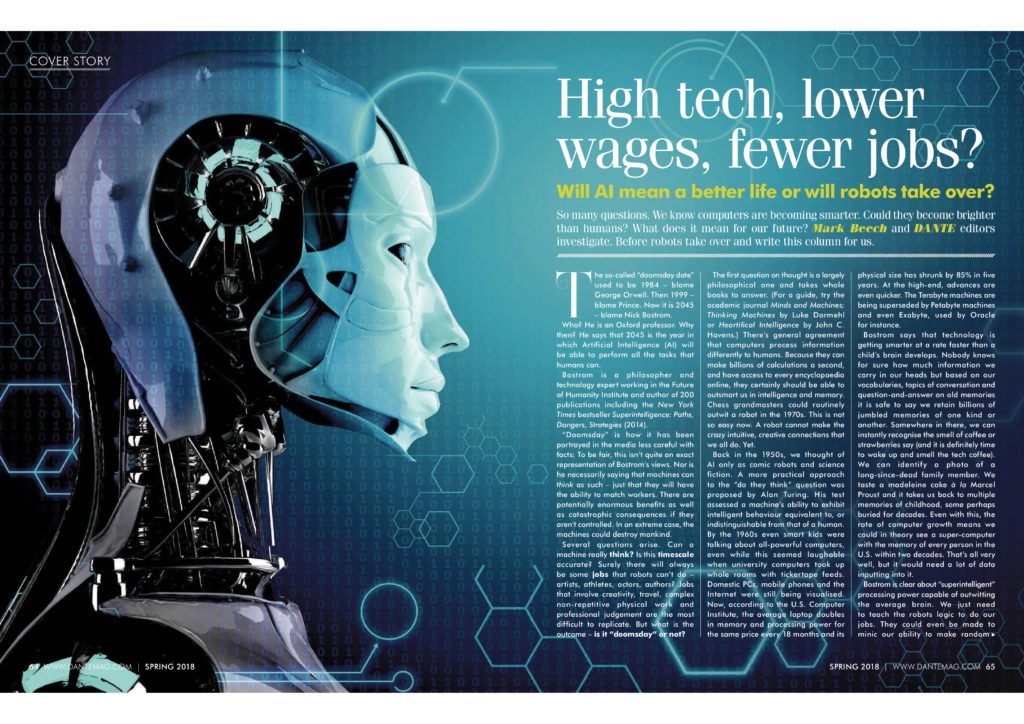
Of Men and Angels. Arditti’s Epic Tale Spans Centuries
March 22, 2018
Where Angels dare to eat.
March 28, 2018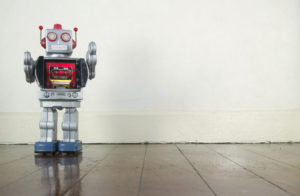 High tech, lower wages, fewer jobs? Will AI mean a better life or will robots take over?
High tech, lower wages, fewer jobs? Will AI mean a better life or will robots take over?
So many questions.
We know computers are becoming smarter.
Could they become brighter than humans?
What does it mean for our future?
Mark Beech and DANTE editors investigate. Before robots take over and write this column for us.
The so-called “doomsday date” used to be 1984 – blame George Orwell. Then 1999 – blame Prince. Now it is 2045 – blame Nick Bostrom.
Who? He is an Oxford professor. Why then? He says that 2045 is the year in which Artificial Intelligence (AI) will be able to perform all the tasks that humans can.
Bostrom is a philosopher and technology expert working in the Future of Humanity Institute and author of 200 publications including the New York Times bestseller Superintelligence: Paths, Dangers, Strategies (2014).
“Doomsday” is how it has been portrayed in the media less careful with facts: To be fair, this isn’t quite an exact representation of Bostrom’s views. Nor is he necessarily saying that machines can think as such – just that they will have the ability to match workers. There are potentially enormous benefits as well as catastrophic consequences if they aren’t controlled. In an extreme case, the machines could destroy mankind.
Several questions arise. Can a machine really think? Is this timescale accurate? Surely there will always be some jobs that robots can’t do – artists, athletes, actors, authors? Jobs that involve creativity, travel, complex non-repetitive physical work and professional judgement are the most difficult to replicate. But what is the outcome – is it “doomsday” or not?
The first question on thought is a largely philosophical one and takes whole books to answer. (For a guide, try the academic journal Minds and Machines; Thinking Machines by Luke Dormehl or Heartifical Intelligence by John C. Havens.) There’s general agreement that computers process information differently to humans. Because they can make billions of calculations a second, and have access to every encyclopaedia online, they certainly should be able to outsmart us in intelligence and memory. Chess grandmasters could routinely outwit a robot in the 1970s. This is not so easy now. A robot cannot make the crazy intuitive, creative connections that we all do. Yet.
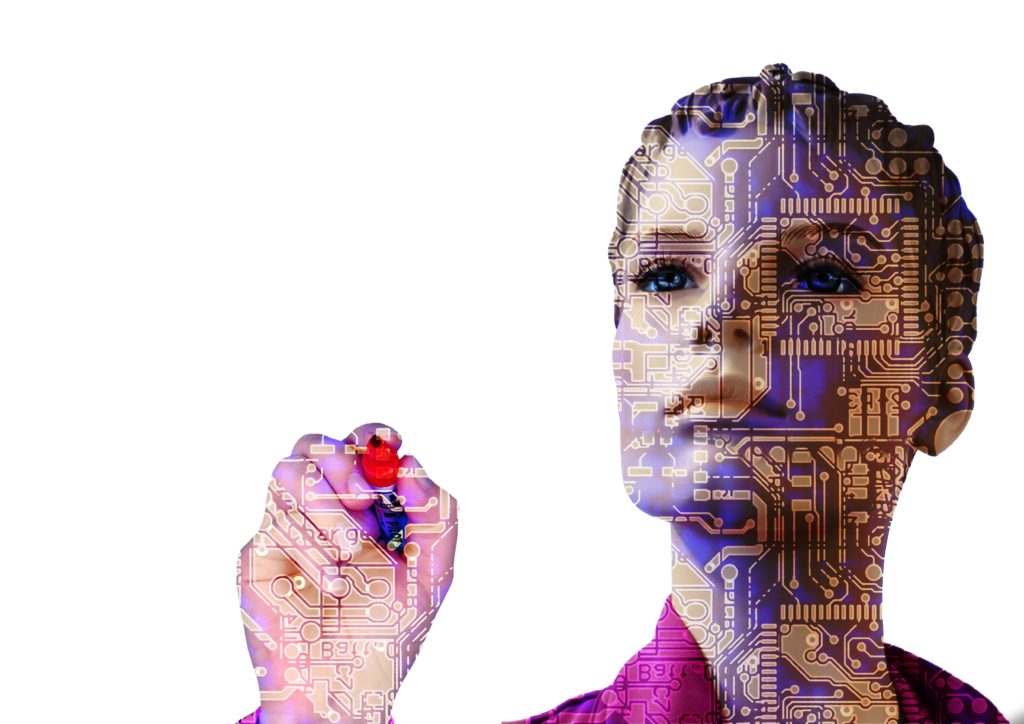
Back in the 1950s, we thought of AI only as comic robots and science fiction. A more practical approach to the “do they think” question was proposed by Alan Turing. His test assessed a machine’s ability to exhibit intelligent behaviour equivalent to, or indistinguishable from that of a human. By the 1960s even smart kids were talking about all-powerful computers, even while this seemed laughable when university computers took up whole rooms with tickertape feeds. Domestic PCs, mobile phones and the Internet were still being visualised. Now, according to the U.S. Computer Institute, the average laptop doubles in memory and processing power for the same price every 18 months and its physical size has shrunk by 85% in five years. At the high-end, advances are even quicker. The Terabyte machines are being superseded by Petabyte machines and even Exabyte, used by Oracle for instance.
Bostrom says that technology is getting smarter at a rate faster than a child’s brain develops. Nobody knows for sure how much information we carry in our heads but based on our vocabularies, topics of conversation and question-and-answer on old memories it is safe to say we retain billions of jumbled memories of one kind or another. Somewhere in there, we can instantly recognise the smell of coffee or strawberries say (and it is definitely time to wake up and smell the tech coffee). We can identify a photo of a long-since-dead family member. We taste a madeleine cake à la Marcel Proust and it takes us back to multiple memories of childhood, some perhaps buried for decades. Even with this, the rate of computer growth means we could in theory see a super-computer with the memory of every person in the U.S. within two decades. That’s all very well, but it would need a lot of data inputting into it.
Bostrom is clear about “superintelligent” processing power capable of outwitting the average brain. We just need to teach the robots logic to do our jobs. They could even be made to mimic our ability to make random connections and give skewed logic for extra authenticity.
Bostrom’s timing may not be far off. By 2030, about 30% of UK jobs could be automated, according to a report for the BBC’s Tomorrows World show.
So what about jobs? Obviously basic AI already does all manner of things – a washing machine adjusts its cycle depending on the weight of items, a modern car can reverse into a parking space and so on. Some of this might not put people out of work and we just appreciate the convenience. But the question of whether robots could take over jobs is already history. Machines have already taken over of load of simple tasks: call-centre answering, supermarket check-outs, providing quotes and risk analysis for insurance, sending reminders for renewals and much more. While these are often mundane or administrative tasks previously done by secretaries and clerks, their low-paid jobs become almost worthless if done by machine. It will have maintenance costs but doesn’t need a vacation, time off or a pension. There is every economic reason to introduce this to medium- and higher-paid positions. As the list of possibilities for these given by The Journal of Cybernetics goes on, it gets scarier.
- All advice and research services such as providing information on opening hours, travel and booking tickets; transcription and translations. (Google Translate and Google Images may be basic but improving).
- Computers already aggregate news stories and automatically send headlines in seconds from company news releases.
- Professional services such as lawyers – from simple tasks like compiling a basic will to more complex jobs such as house-conveyancing or initiating legal action. Initially it would need to be overseen, just as any junior solicitor is. It could be set so that no action is completed without human sign-off.
- Already we have trading software that will buy $xx million of bonds when the yield hits x.x% or sell if it reverses. Hedge funds have monitors set with complex rules that will identify strong price-earnings and do the jobs of real traders before they have even come to work in their Aston Martins. The machines are cheaper too.
- Machines often analyse health-test results and provide recommendations to doctors. They can be set to do much more – if a hospital patient’s blood pressure rises above xx and heartbeat is more than xx the machine administers more medicine or flags it to a nurse as an action point. The analysis of DNA codes is continuing with computers likely to start coming up with golden gene “streams” most likely to provide intelligent people and with less chance of getting cancer. It is a Huxleyite Brave New World.
- First taxi drivers found maps less necessary with satnav. Now, as self-driving cars become a reality, robots may not be so far from taking over from taxi drivers, delivery couriers or even aeroplane pilots.
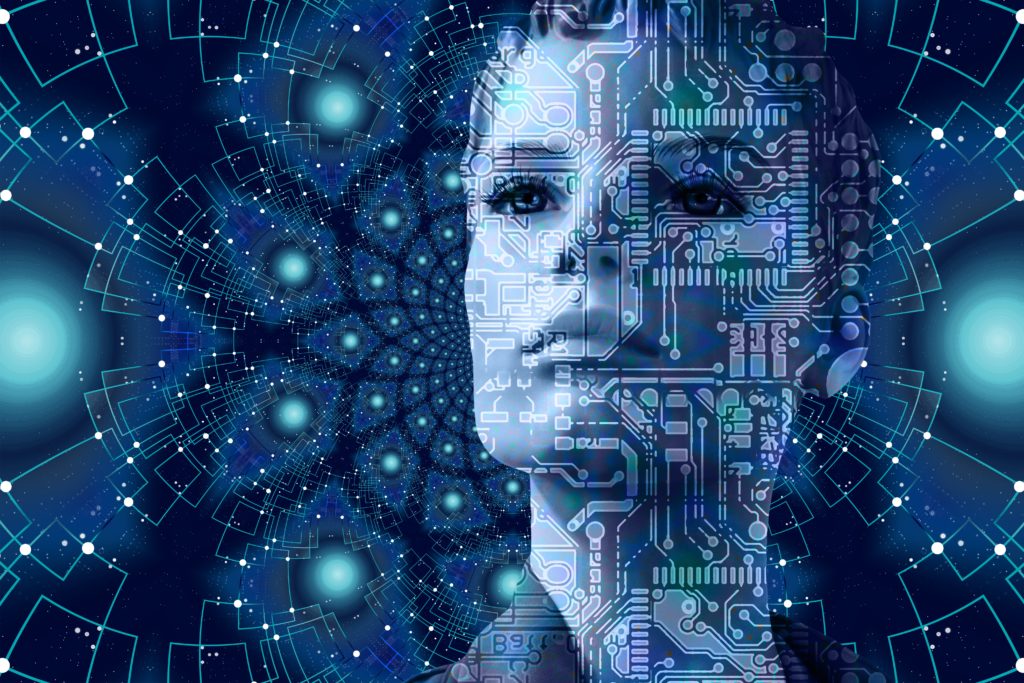
The prospects are naturally scary: We all know how useless our everyday computers can be in 2018. They lose connection; they run slowly, software fails. We all battle with check-outs with their frustrating “unauthorised item in bagging area” alerts. Or call-centre lines with “the response is not recognised”.
One can foresee the problems if a remote delivery drone was flying an Amazon-type order to someone’s house. What are the chances it would deliver the item to the wrong place, injure a child or pet on landing in the back garden or worse?
We are talking of life and death here: Would a car robot be able to react as smartly as a human driver if another vehicle swerves into its path? Or if a plane computer crashes, or life-support machine is hacked?
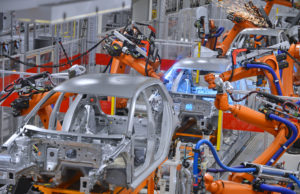
A car engineer, barrister, a travel writer, a hairdresser or house surveyor may all seem safe enough, but a Harvard University Law School report noted that as more information becomes available online, computers would easily find a lot of background information to help lawyers in their tasks. The machine analyses previous codified case actions for precedents and produces a checklist of points and logical actions to take. The U.K. RICS Institute of Surveyors points out that a basic search of a property can now reveal a lot of information: all previous sale prices, alarm-bell points flagged on previous surveys such as potential flooding or dangerous electricals, confirmed sale values of neighbouring and comparable properties and hence a computerised prediction of likely value now – all before a surveyor has even set foot in the building to fully value it for sale, mortgage, probate or whatever.
Industrial robots are used widely in factories, and in time can be taught to do even complex physical tasks: bespoke watch or suit making, home plumbing or electrical repairs, building or brain surgery. Yes, we said “brain surgery”. The U.S. Mayo Clinic computers do MRI and tomography scans to create 3-D models of brains. Separately British delegates at the last FLAIRS (Florida Artificial Intelligence Research Society) conference spoke of robotic surgery of all kinds within 50 years.
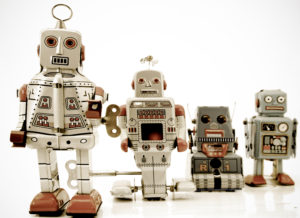 The good news is that computers are getting better. In a decade’s time, even the humble checkout might be truly smart and not clunky, slow and infuriating. In theory humans will be freed up to do more constructive things, the sort of tasks machines still can’t do.
The good news is that computers are getting better. In a decade’s time, even the humble checkout might be truly smart and not clunky, slow and infuriating. In theory humans will be freed up to do more constructive things, the sort of tasks machines still can’t do.
“We might only get one shot at getting it right,” Bostrom told a conference in Dubai in February.
Perhaps, a questioner suggested, we should allow the machines freedom to roam over topics. If they are simply briefed to do everything possible to make life better they could study options, drawing information from Internet searches, track human activities and seek ways they can be automated. This in itself raises questions. Perhaps the machines are already working against us? Could they work against themselves?
At the same Dubai event – the sixth World Government Summit – Daniela Rus of the Massachusetts Institute of Technology, expressed more hope. Rus, Director of MIT’s Computer Science and Artificial Intelligence Laboratory, said robots need to cooperate and not compete if “we can identify a set of rules for the greater good.” Hold on, this is a big if. And even if we do, what are the chances that the super-bright cybermen might in time unilaterally reject the rules? It is easy to foresee a machine with an overriding ego and self-preservation as its main goal. Rus remains largely optimistic though she is aware of the effect on employment. There will be a need for jobs to service the machines, until they get smart enough to do that themselves, and also to check on their cyber actions: will the drone deliveries get to the right place and so on.

Cover image exclusively drawn for DANTE by artist Sonia Strukul
The hope is that we are freed from dull tasks to do something more constructive and efficient, says former Google boss Eric Schmidt. “It doesn’t reduce the jobs, it changes the job.”
However, it is all very well making leisure time, by what use is that if ordinary humans are left with nothing to do and nothing to earn? Fine, if we own the computers and sit back as they make money for us. There certainly is a money-making opportunity in creating a piece of software that makes a job redundant and copyrighting it. Of course, someone else may do it better, make an offer to buy the software or effectively steal it. In the long-term though, the software giants will buy most of the smartest. Karl Marx may be fortunately dead as an economic theorist, but if that makes the idea of the workers (non-workers) controlling the means of production look unlikely, whole human industries are about to die.
The rise of the Internet has also changed many industries. Publishing for one; so too the creative industries thanks to file-sharing sites and streaming via YouTube, which pays much less royalties than old-fashioned distribution methods. It is hard for copyright to have any meaning, as argued by action group CISAC. A vast AI brain around the world would make it impossible to control the rights to anything.
An Oxford Union debate in 2000 concluded that computers are safe: if they get to be bolshie Daleks, we can just turn them off. That is no longer the case: the stage is already being reached with merged servers where that it is impossible.
Perhaps the most revolutionary, or scary depending on how you look on it, change is yet to come.
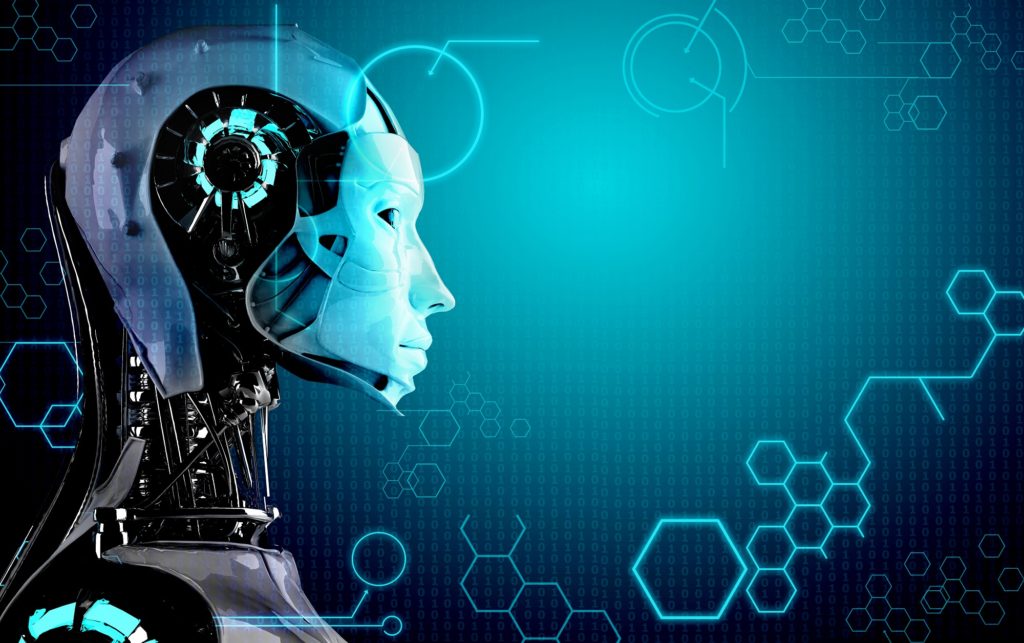
Here is the view of SpaceX and Tesla CEO Elon Musk. “Over time, I think we will probably see a closer merger of biological intelligence and digital intelligence. It’s mostly about the bandwidth, the speed of the connection between your brain and the digital version of yourself, particularly output.”
Musk spoke as The Wall Street Journal revealed that he is backing an interface between the brain and computers called Neuralink. The company will make devices that can be implanted in the human brain and merge us with software. In theory we could benefit from AI’s processing speed and memory, and it could use our own unique way of thinking.
Even artists are not safe. Google’s Project Magenta started to allow computers imagination to manipulate images with startling consequences.
In the meantime, our DANTE recommendation to you is to work on the killer software which means you need not work and the computer can do it for you.
And in your increased leisure time watch the TV series Black Mirror, which puts the case for and against technology. Or The Terminator movie series, which sees a future in which robots become sentient and wage war with humankind. It’s fiction: It couldn’t happen for real, right?
This is a shortened version of the cover article that appeared in full in the Spring 2018 issue of DANTE print magazine.
The magazine is available to buy at £5.95 in larger WHSmiths such as those in Selfridges, railway stations and airports; also in selected independent newsagents. We are also on phone app and Amazon. It is possible to subscribe to 6 quarterly issues for £30 or equivalent, with free postage anywhere in the world, via this website – see the link on the front page www.dantemag.com.
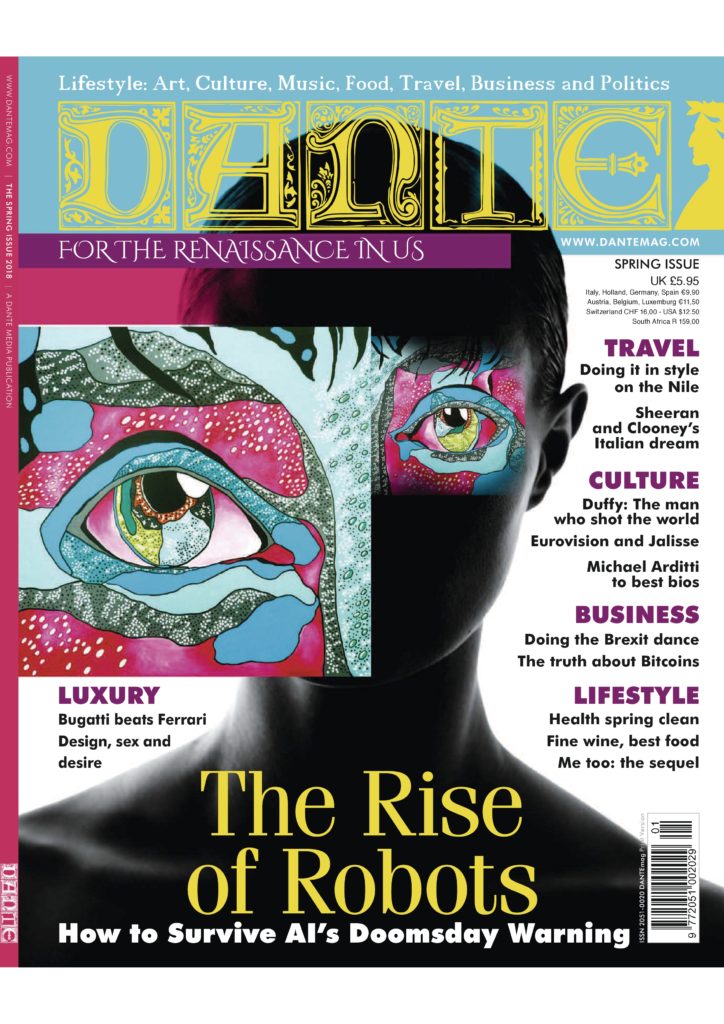
Dante cover Spring 2018
Sample page
